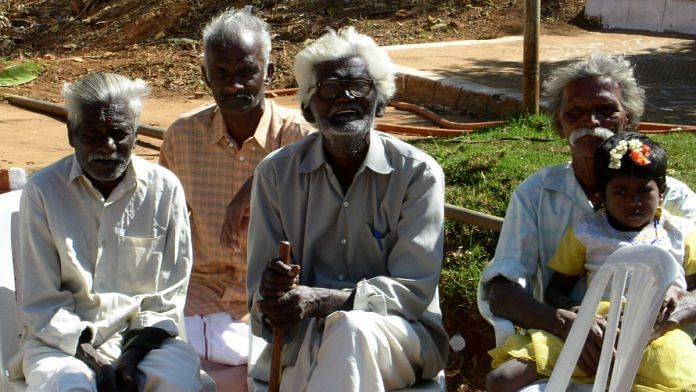New Delhi: Nearly a quarter of people above 60 years in India suffer from poor health, show results of the first part of the Longitudinal Ageing Study in India (LASI) released Wednesday.
In a longitudinal study, subjects are followed over time and there is repeated monitoring. According to the survey, “a quarter of elderly age 60 and above and a sixth of older adults age 45 and above reported poor self-rated health (SRH)” in India.
More importantly, the study found that women, especially those with no schooling and not employed, were more likely to report poor SRH in ages 60 and above. It also noted that more than half of those aged 60 and above reported poor SRH in Kerala (53 per cent) and Tamil Nadu (53 per cent).
The “world’s largest and India’s first longitudinal study”, LASI focuses on collecting data on the burden of diseases, functional health, social as well as economic well-being of older adults.
Launched under the aegis of the health ministry, the study was conducted in partnership between the International Institute for Population Sciences (IIPS), the Harvard T.H. Chan School of Public Health (HSPH) and the University of Southern California.
Also read: Drastic changes in diet, increase in anxiety, loneliness — how Covid altered lifestyles
Self-rated health of participants
The first part of the study, conducted between 2017 and 2019, includes 72,250 adults who are 45 years and above. Of these participants, 31,464 are above the ages of 60.
For the study, the participants were divided into groups or clusters based on area, and the “goal was to select a representative sample in each stage of sample selection”.
The different stages of the sampling process involved selecting ‘primary sampling units’ i.e. sub-districts (tehsils/talukas), villages or wards (depending on whether it was a rural area or an urban area) and then a household.
The study took note of participants’ general health with SRH questions. Respondents were asked about their health and given five possible responses, ranging from very good to very poor.
Disease burden
LASI found that 27.2 per cent of the population surveyed suffer from cardiovascular diseases, 25.8 per cent from hypertension and 11.5 per cent from diabetes or high blood sugar. Around 15 per cent also said they suffered from bone or joint diseases.
The disease burden was higher among urban respondents 60 years and above. Women were also more likely to have suffered from cardiovascular diseases, hypertension and joint diseases.
But more men were reported to be suffering from diabetes. In addition to this, about 7.7 per cent of the population suffered from depression, more among women than men.
According to the survey, 20.7 per cent of the population was overweight, with women more likely to be overweight.
Also read: Why India must vaccinate 80% of population by December 2021 — no matter what the cost




This kind of study is only to scare the people , so that pharma companies can make money by selling unwa6 medicine.
Limit of blood sugar is the glaring example